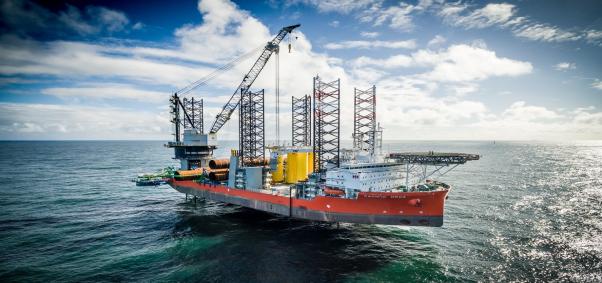
For a Good Investment Climate, Put Climate First
By Caio Koch-Weser
This article was originally published in Reuters.
Caio Koch-Weser is Chair of the European Climate Foundation and member of the Global Commission on the Economy and Climate.
As the current G7 President, Canada identified five issues to advance throughout 2018. Four of these are inclusive growth, jobs, gender equality and women’s empowerment, and building a more peaceful and secure world. It is increasingly clear that success in tackling these four will depend on how we tackle the fifth issue: climate change.
The reality is that time is running short to keep global temperature rise to well below 2°C, the goal agreed by over 190 countries under the 2015 Paris Agreement. All countries must accelerate their efforts much more than they have done thus far, especially the G7.
The good news for leaders is that this is not just about avoiding the worst-case scenario. Far from it. We now know, unequivocally, that acting on climate is in fact a key to unlocking inclusive economic growth, creating more jobs, and advancing women’s economic place in the world.
Ambitious climate action could deliver a US$26 trillion boost to the global economy between now and 2030. It can deliver over 65 million additional jobs in 2030, save over 700,000 lives thanks to improved air quality, and increase women’s participation in the labour force. And since we know climate impacts are contributing to loss of livelihoods and even migration, increasing resilience to climate change is an essential pathway to deliver a more peaceful and secure world. On the other hand, the costs of inaction could be enormous: 2.5°C of warming in a business-as-usual world could lead to losses worth an estimated US$24.2 trillion.
The climate story is, at its heart, a complex problem of better risk management over long-timeframes, with potentially catastrophic economic consequences from inaction. Standard cost-benefit approaches are insufficient because, on the one hand, there are uncertainties about the costs of inaction, and on the other, economists have systematically underestimated the potential for new, breakthrough solutions to dramatically boost to economic growth. This complexity means that too often Finance and Economy Ministers are loathe to take climate change fully on board as they chart the future of their economies.
In fact, it is increasingly clear that climate action is the growth story of the 21st century. Markets for renewables are strong and booming: around US$280 billion was invested in new renewable energy generation in 2017, continuing a 6-year trend of outstripping global fossil fuel generation investments. Green bonds issuance, for instance, in 2018 is expected to reach US$250 billion, with calls to quadruple to US$1 trillion by 2020. Nearly 450 companies across all major sectors have committed to setting science-based targets in line with the Paris Agreement, and over 120 have already established these, as a means to future-proofing their growth.
The dry language of financial policy and financial markets does not sound like it would deliver dramatic progress on our climate challenge, but more than ever, I am convinced it can and will.
France has moved to make climate risk disclosure mandatory. Other compelling examples are seen in strong policy reforms in China and the European Commission’s High-Level Expert Group on Sustainable Finance and resultant European Commission action plan, including efforts to develop a sustainable finance taxonomy as an essential tool to establish market consistency and clarify for investment alignment with EU policy.
Having worked all my career across the public and private finance worlds, I am particularly optimistic about the role the finance sector can play in delivering the low-carbon transition. Private finance is essential if we are to secure the estimated US$90 trillion investments in infrastructure anticipated by 2030. But the good news is that these do not need to cost much more if they are directed towards sustainable infrastructure.
There is exciting momentum now that could be built upon to decisively transform financial markets. To do so, we need to move on three fronts. First, institutional investors and asset managers should integrate sustainability considerations into their decision-making and share information about how they are doing this. By recognising climate-related financial risks, asset owners and managers can managethese risks and this increasingly will mean rapid decarbonisation of portfolios and businesses and further acceleration of green investment. The G7 can lead in this area through the G7 Investors Global Initiative. This is a group of leading global institutional investors representing more than US$6 trillion in assets under management.
Second, central banks and prudential regulators must use the newly-established Network for Greening the Financial System to share information on how to develop and deploy clear methodologies to assess climate risks on their balance sheets and to manage these. They can also make sure they integrate sustainability into national financial supervisory body mandates. Once central banks and regulators start “pricing in” carbon risk into capital requirements and other regulatory practices, private finance is certain to respond quickly and comprehensively – shifting faster and further, out of polluting activities and into clean.
And third, the G7 must consider expanding private and multilateral development bank investment to help close the clean infrastructure gap and respond to the projected growth in demand for capital investment.
The G7 can be at the forefront of bringing radical change to finance across all of these. We have many of the ingredients we need already to get started, including a sense of how big the opportunity ahead could be, and how great the risks of inaction.
These are three critical actions that I would urge Environment Ministers to work on with their colleagues in Finance Ministries. There will always be people who say we cannot afford to act on climate change. The fact is we cannot afford not to.






